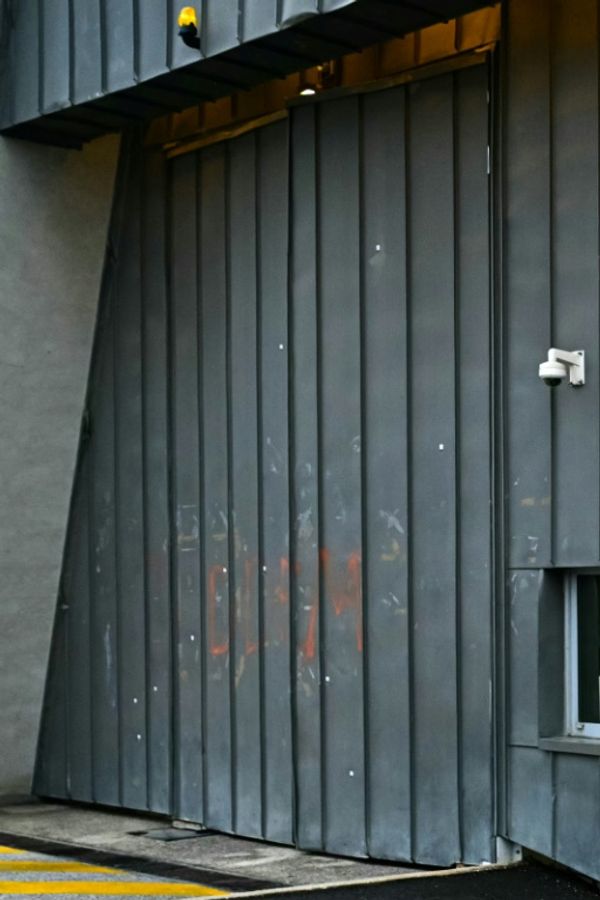
A hand curls up from a grave-like hole in the ground; an undead figure rises up to gothic showers of light, ominous sound and dry ice. It’s not easy to do horror on stage and the Thriller-style pop video aesthetic to the opening of Tife Kusoro’s play looks as if it might quickly turn into schlock. Instead, it rallies its scary movie tropes to create its own intelligent urban gothic.
The story concerns a trio of schoolkids – Kai (Selorm Adonu), Joy (Kadiesha Belgrave) and Khaleem (Ebenezer Gyau) – and an urban legend around the ghost of a dead Black teenager they call Baitface (Dani Harris-Walters).
We hear how Baitface was chased to his death while returning home from school, accused of a crime he did not commit. In eerie circularity, these characters seem under suspicion by bigger surveilling forces, though they are eminently ordinary children. One is a high-achieving head boy worried about his standing when his homework diary is confiscated; another is grappling with gender identity; the third feels closely connected to a grandparent. You feel tenderness towards them as they banter, play-fight and fall out, in the way of children.
Said to be inspired by urban legends and Afro-surrealism, the play also seems to be influenced by Daniel Kaluuya (a Royal Court alumnus), who is invoked early on. The drama draws the same metaphoric parallels between Black hauntings and structures of racial oppression as Jordan Peele’s darkly comic horror Get Out, which gave Kaluuya his breakthrough. An existential dread builds in the lives of these characters alongside existential fear and guilt. The insinuation is that this is all part of the coming-of-age experience for Black teenagers, whether innocent or guilty.
Under the direction of Monique Touko, non-realism is mixed into ordinary life in audacious ways, with the same high-wire bravura as Jasmine Lee-Jones’s Seven Methods of Killing Kylie Jenner, an award-winner at the Royal Court in 2019. Both are original, dealing in their own themes, but bubble with the same cleverly rendered under-notes of anger.
Kusoro won the George Devine award for promising writers, and you can see why: this is a complicated, ambitious and thrilling ride of a play. Expressive movement (choreographed by Kloé Dean) plays out repeating nightmares and spectral sightings, and draws out the play’s central Kafkaesque idea of being chased by an unknown force for an unknown crime.
Tonally it treads a tightrope, too, pitched somewhere between a scary story and a coming-of-age drama, with gothic dread and goofy schoolyard comedy bristling side by side but never undercutting each other.
Madeleine Boyd’s gloomy set flares suddenly with light (designed by Adam King), sound (by Khalil Madovi), and projections of rolling news reports (video design by Tyler Forward). Some components feel messy around the edges, with repetitions that leave you slightly stranded, and a heavy-handed way with gender identity that jars against the bigger unspoken vibe in the play.
But the finding of new talent is what the Royal Court’s upstairs stage is for, and this is a diamond discovery.
• At Royal Court Upstairs, London, until 21 September







